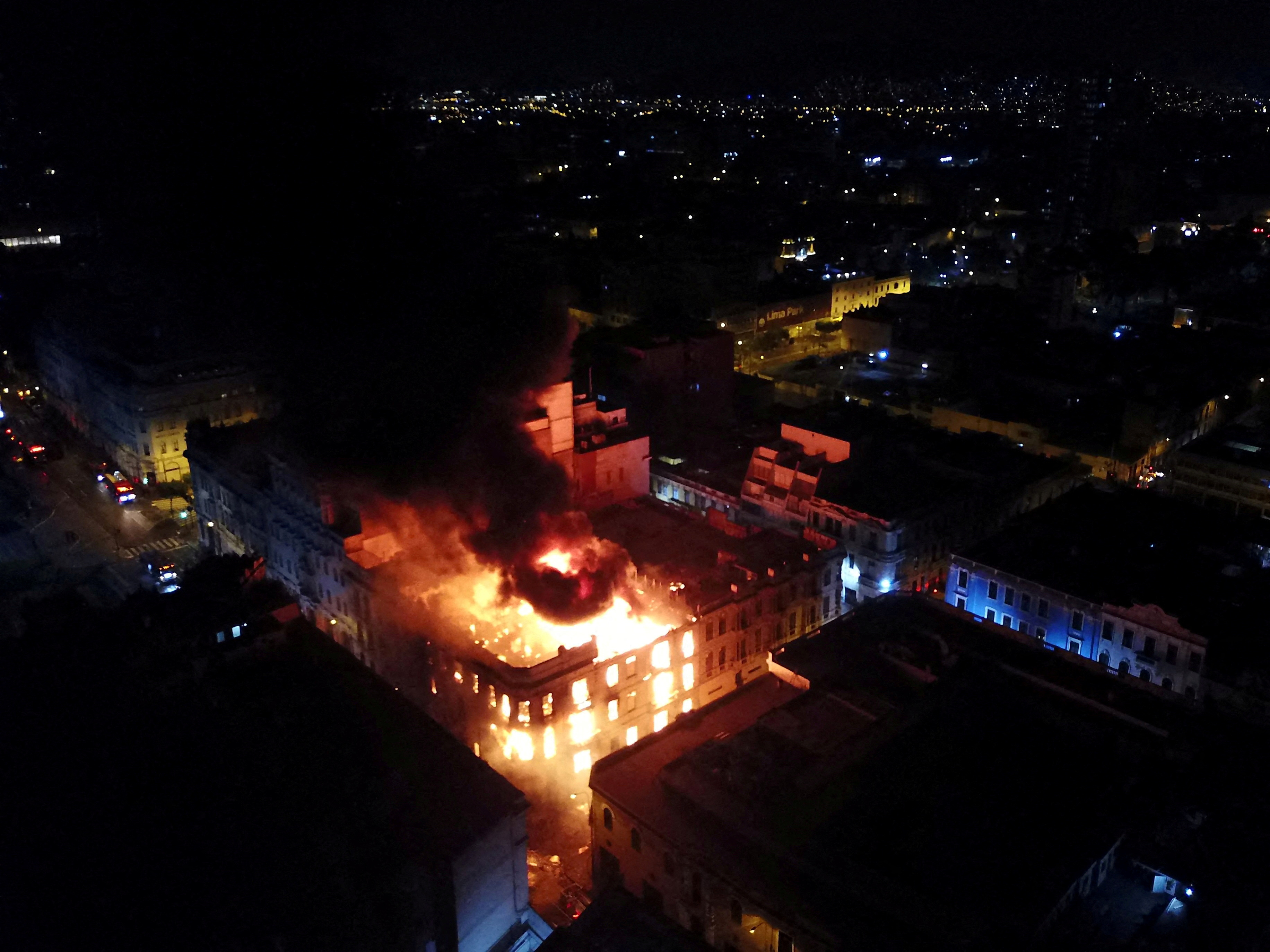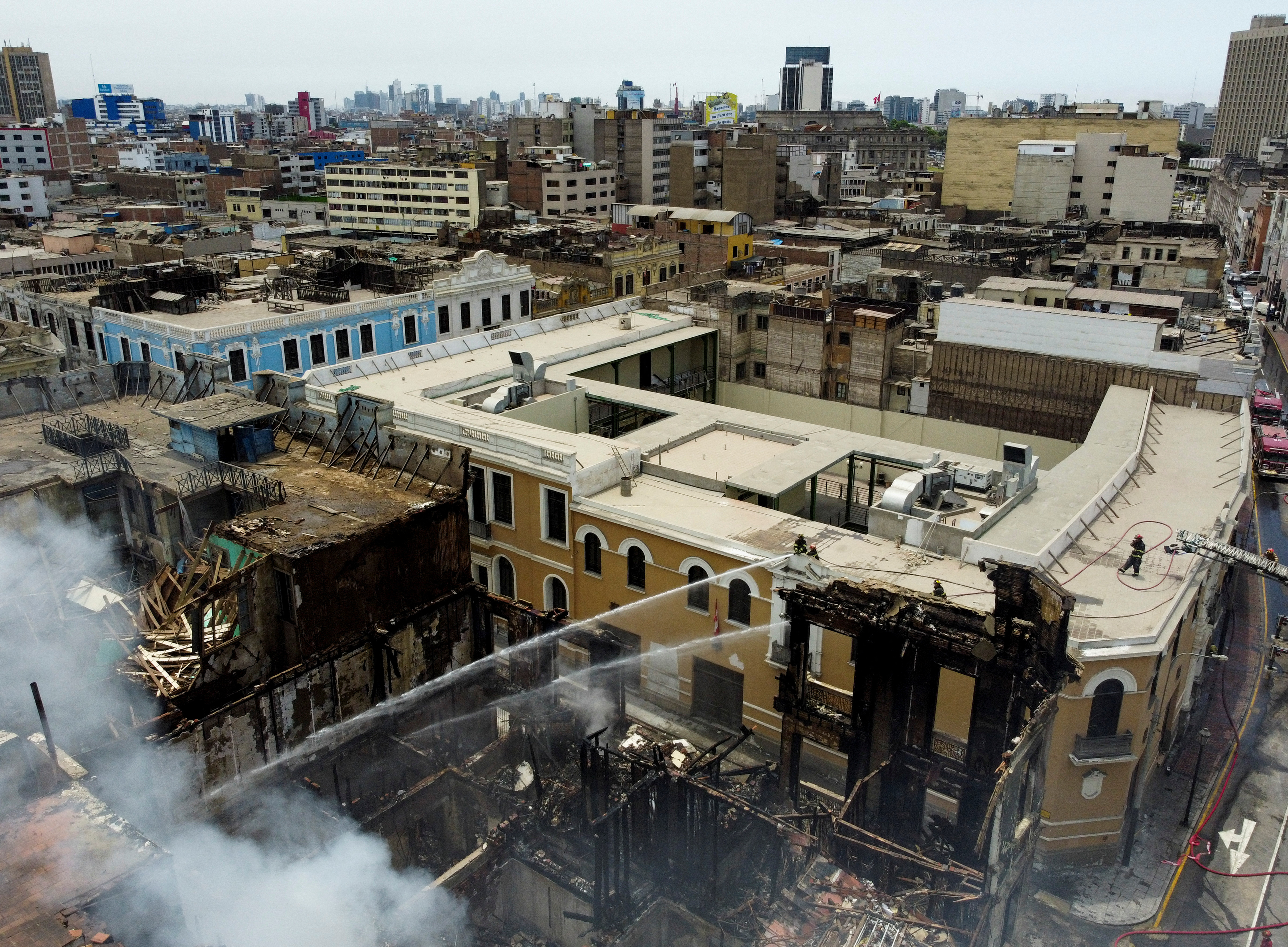2023-01-21T02:55:09Z
No decision was reached by Western allies on a rapid shipment of German Leopard-2 battle tanks to Ukraine to boost its firepower for a possible spring offensive against Russian forces.
* Senior U.S. officials are advising Ukraine to hold off on launching a major offensive against Russian forces until the latest supply of U.S. weaponry is in place and training has been provided, a senior Biden administration official said.
* Although NATO defence leaders and allies reached no decision on authorising export of Leopard-2 tanks at a meeting at the Ramstein military base, German Defence Minister Boris Pistorius said Berlin was ready to “move quickly” if there was an agreement.
* Ukraine will still have to fight to ensure a supply of modern heavy armour, President Volodymyr Zelenskiy said.
* Ukrainian forces will train on Leopard-2 battle tanks in Poland, Defence Minister Oleksii Reznikov was quoted as saying, despite the lack of an agreement.
* A bipartisan delegation of three U.S. senators visiting Kyiv blasted the delays over Western tank supplies, with one warning of an impending “major counter-offensive” by Russia.
* Germany and other countries supporting Ukraine have to decide individually whether to supply it with tanks, the head of NATO’s Military Committee, Admiral Rob Bauer, said.
* NATO Secretary-General Jens Stoltenberg said countries backing Ukraine needed to focus not only on sending new weapons to Kyiv, but looking at ammunition for older systems and helping maintain them.
* A group of 11 NATO countries, including Britain and Poland, pledged a raft of new military aid to support Ukraine.
* A Canadian company supplying battle-ready armoured vehicles to Ukraine plans to deliver the 200 vehicles Ottawa promised to Kyiv before summer, the firm’s chief executive said.
* Ukraine’s Western allies might bridge delays in implementing a 10-point peace plan that the country has put forward if each country takes responsibility for one part, Olena Zelenska, Ukraine’s first lady, said in an interview.
* The United States will impose additional sanctions next week against Russian private military company the Wagner Group, which U.S. officials say has been helping Russia’s military in the Ukraine war, the White House said.
* Ukraine’s energy minister said the situation at the Russian-held Zaporizhzhia nuclear power station was deteriorating because of the psychological state of its Ukrainian staff and the condition of equipment.
Related Galleries:
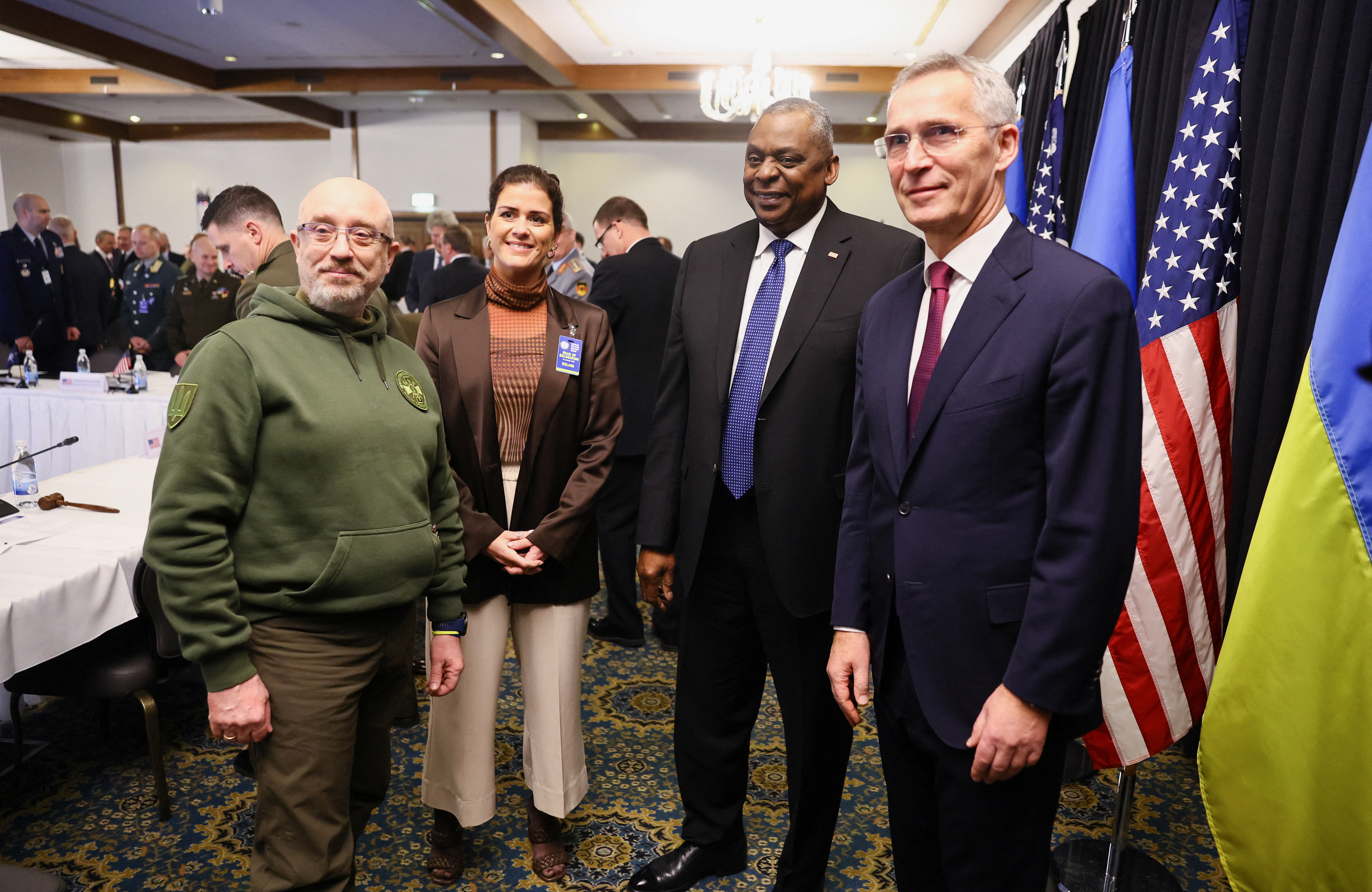
U.S. Secretary of Defense Lloyd Austin, Ukraine’s Defense Minister Oleksiy Reznikov, Iceland’s Minister of Foreign Affairs Thordis Kolbrun Reykfjord Gylfadottir and NATO Secretary General Jens Stoltenberg, meet to discuss how to help Ukraine defend itself, at Ramstein Air Base, Germany, January 20, 2023. REUTERS/Wolfgang Rattay
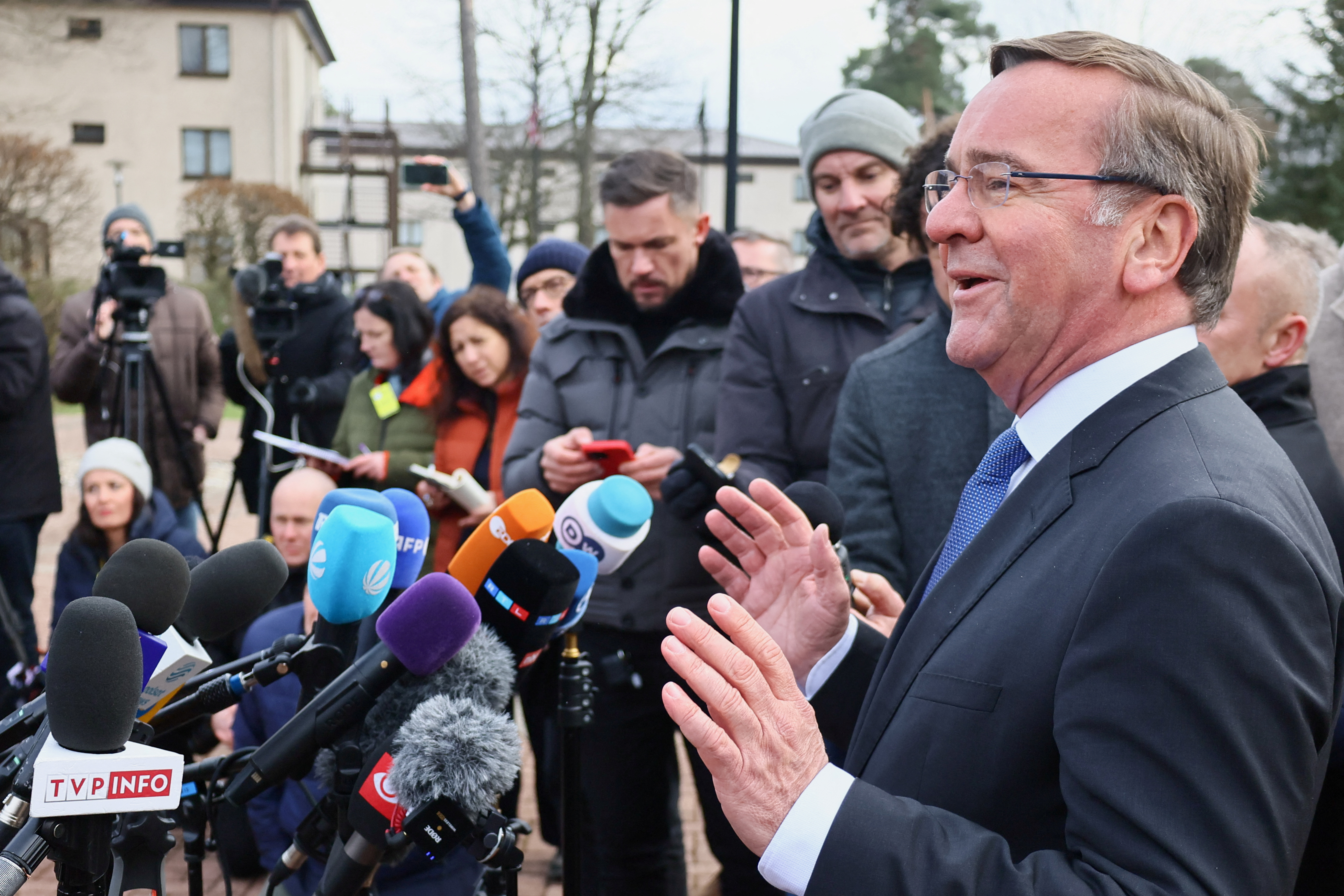
German Defence Minister Boris Pistorius speaks to the media at Ramstein Air Base, Germany, January 20, 2023. REUTERS/Wolfgang Rattay
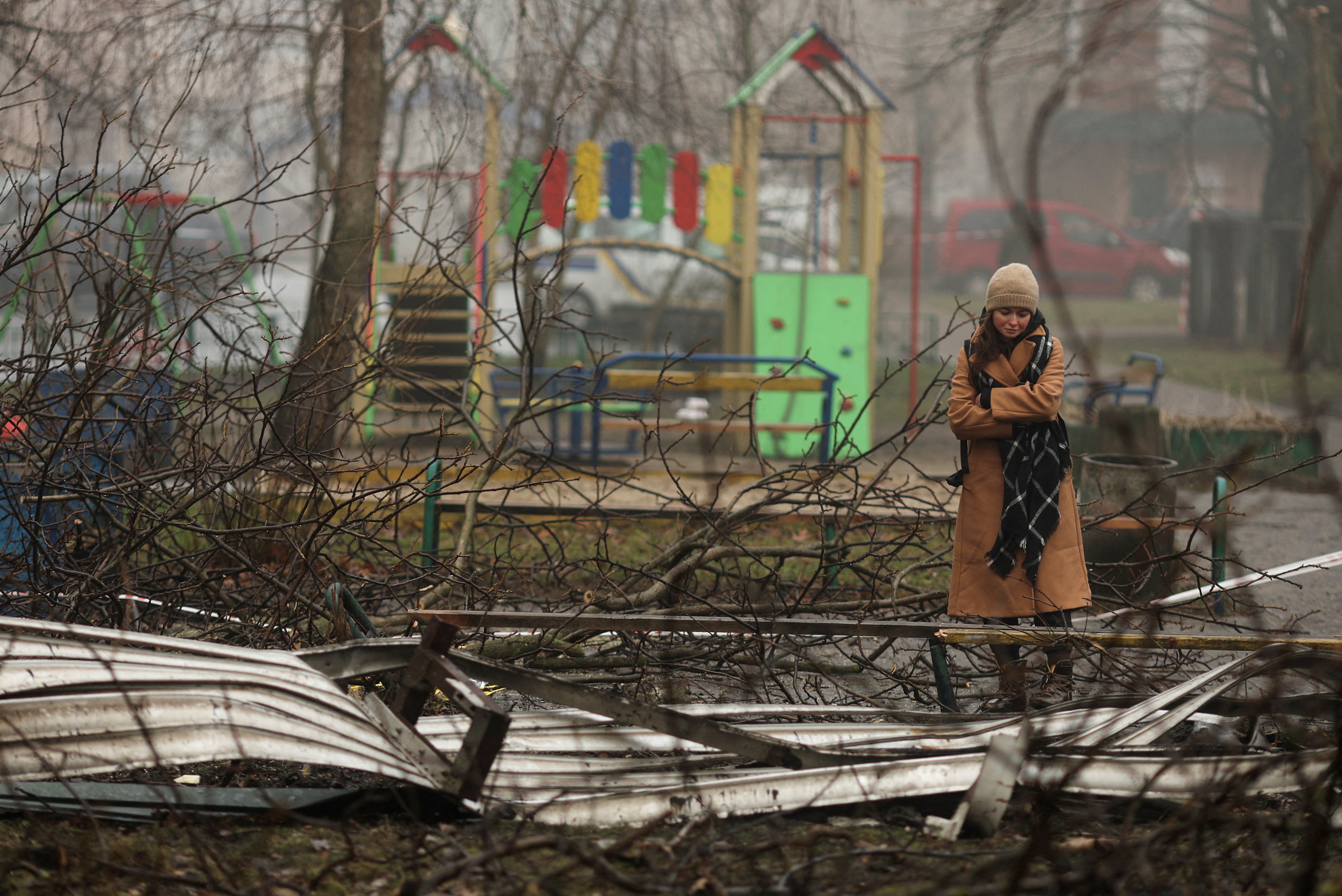
A relative looks at the site of a helicopter crash, amid Russia’s attack on Ukraine, in the town of Brovary, outside Kyiv, Ukraine, January 19, 2023. REUTERS/Nacho Doce

An employee works on the Senator APC at vehicle manufacturer Roshel after Canada’s defence minister announced the supply of 200 Senator armored personnel carriers to Ukraine, as part of a new package of military assistance, in Mississauga, Ontario, Canada January 19, 2023. REUTERS/Carlos Osorio
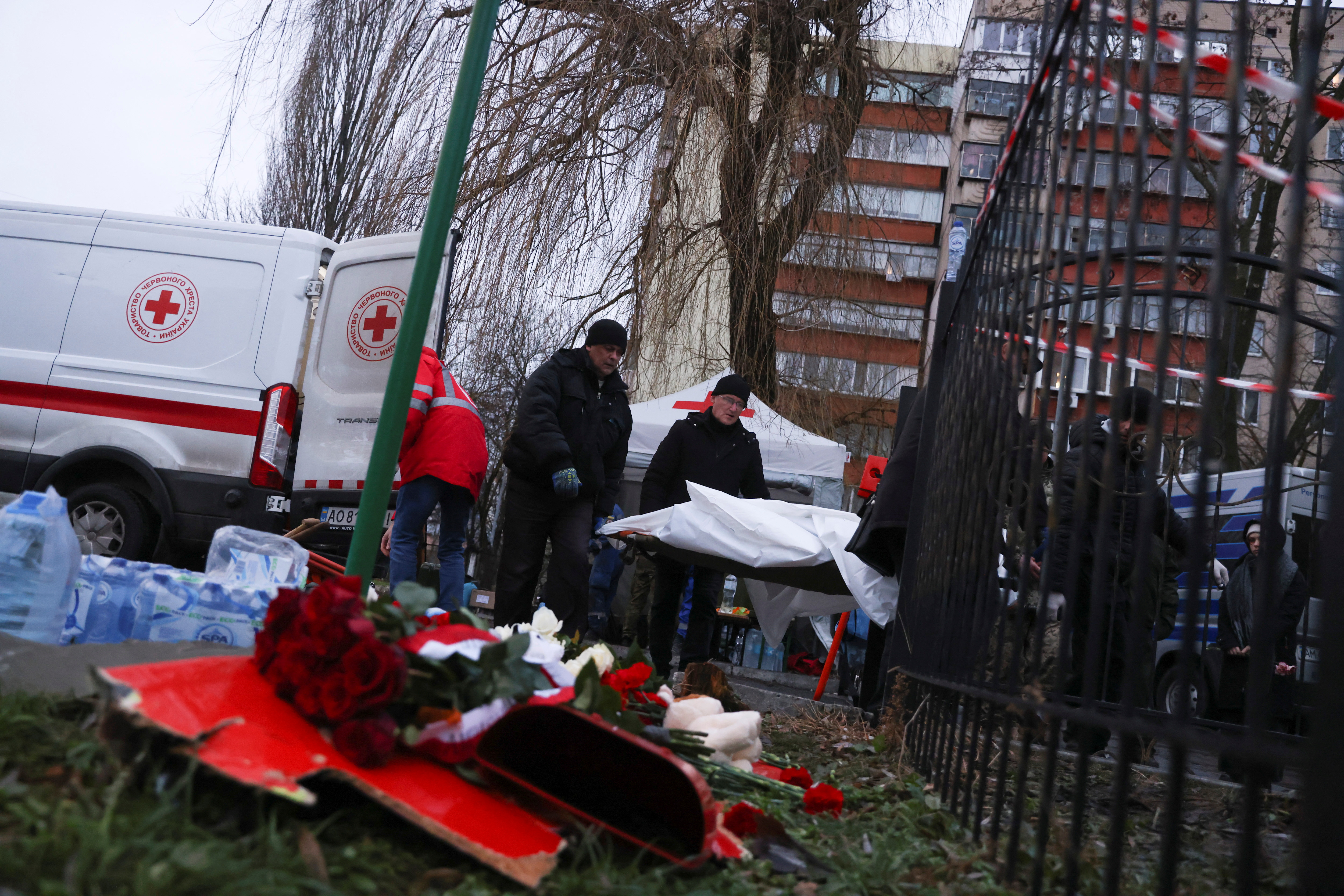
Ritual workers carry bodies of victims as they walk past tributes for victims, near the site of a helicopter crash, amid Russia’s attack on Ukraine, in the town of Brovary, outside Kyiv, Ukraine, January 18, 2023. REUTERS/Nacho Doce
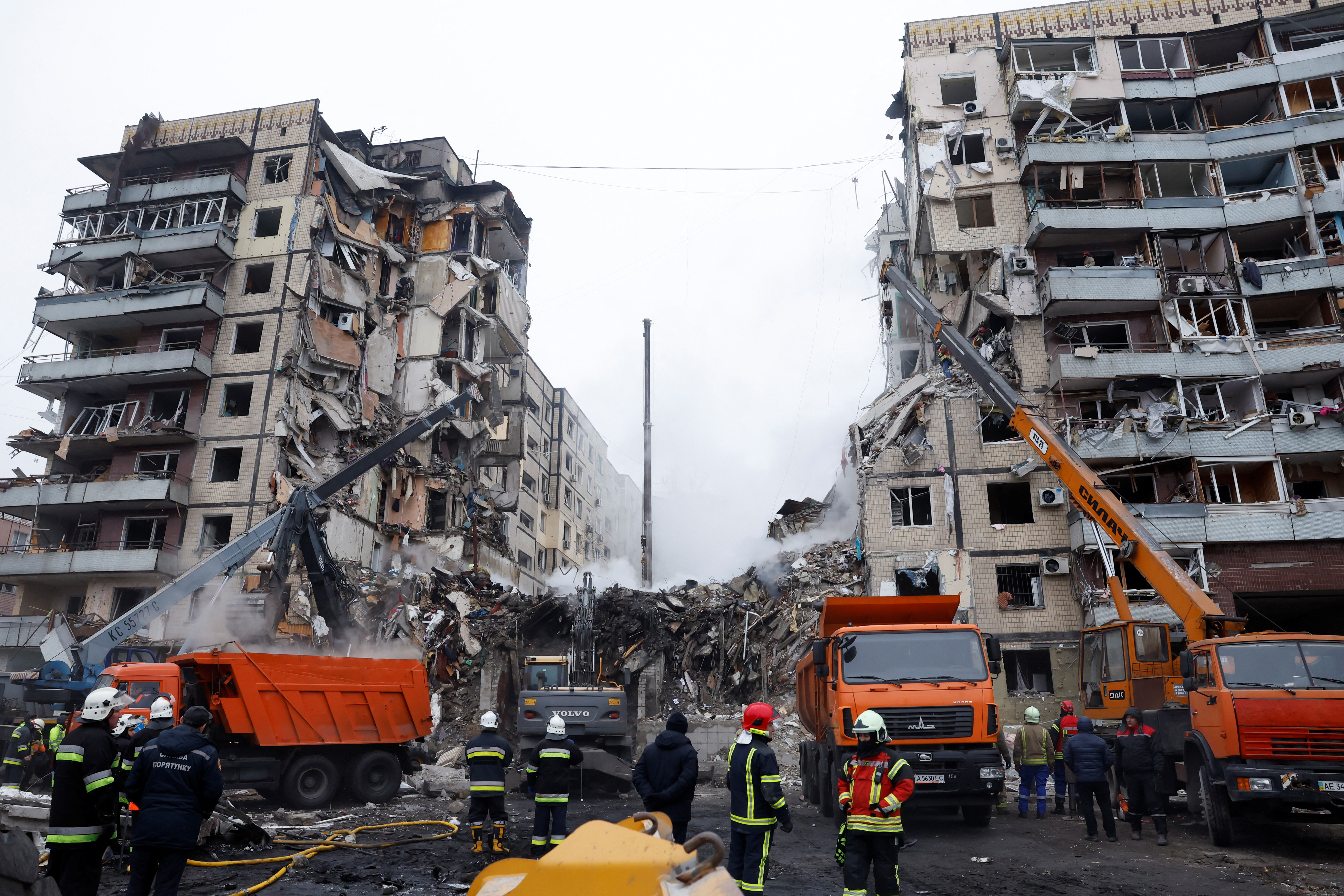
Emergency personnel work at the site where an apartment block was heavily damaged by a Russian missile strike, amid Russia’s attack on Ukraine, in Dnipro, Ukraine January 15, 2023. REUTERS/Clodagh Kilcoyne
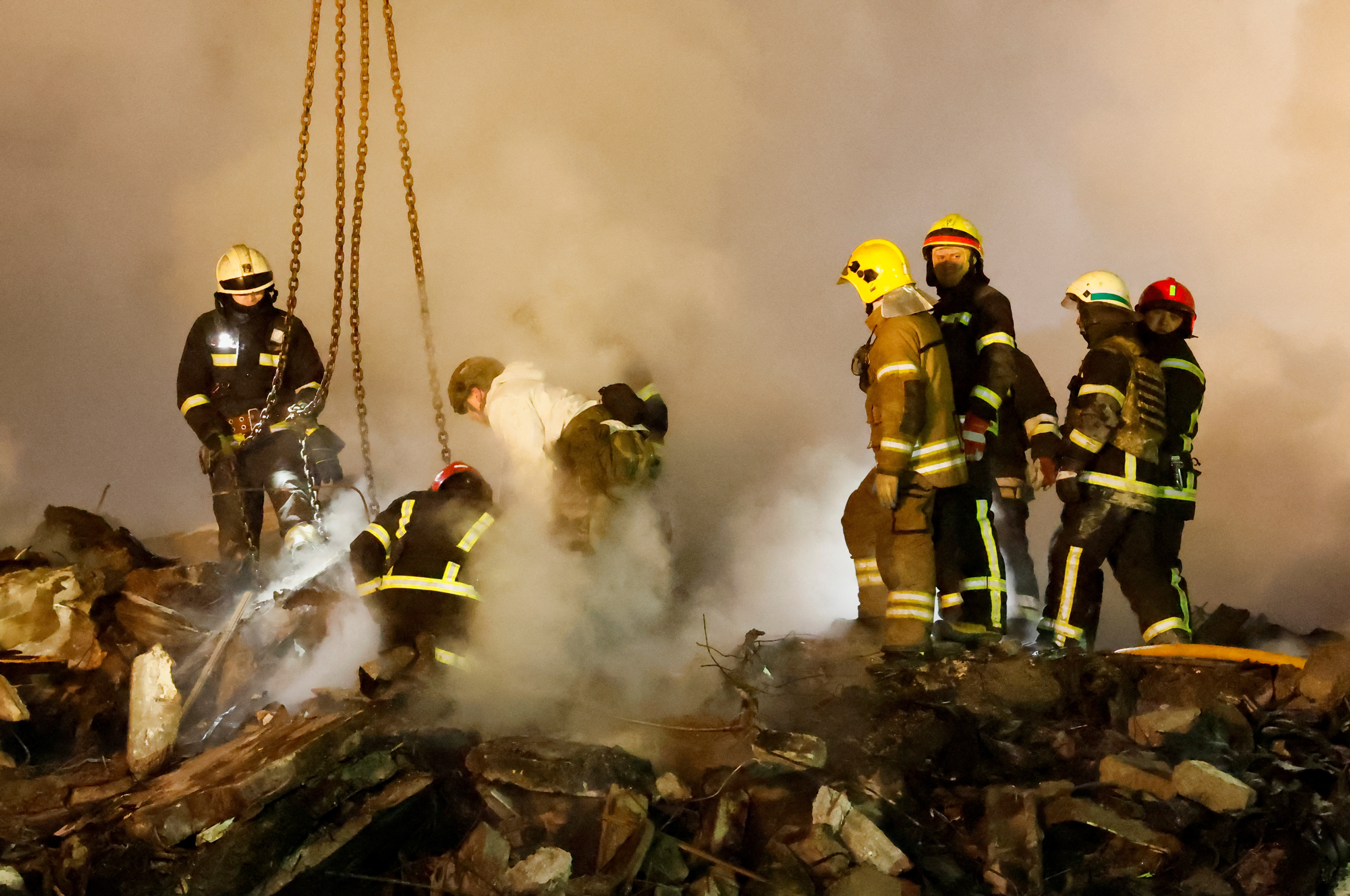
Emergency personnel work at the site where an apartment block was heavily damaged by a Russian missile strike, amid Russia’s attack on Ukraine, in Dnipro, Ukraine January 15, 2023. REUTERS/Clodagh Kilcoyne
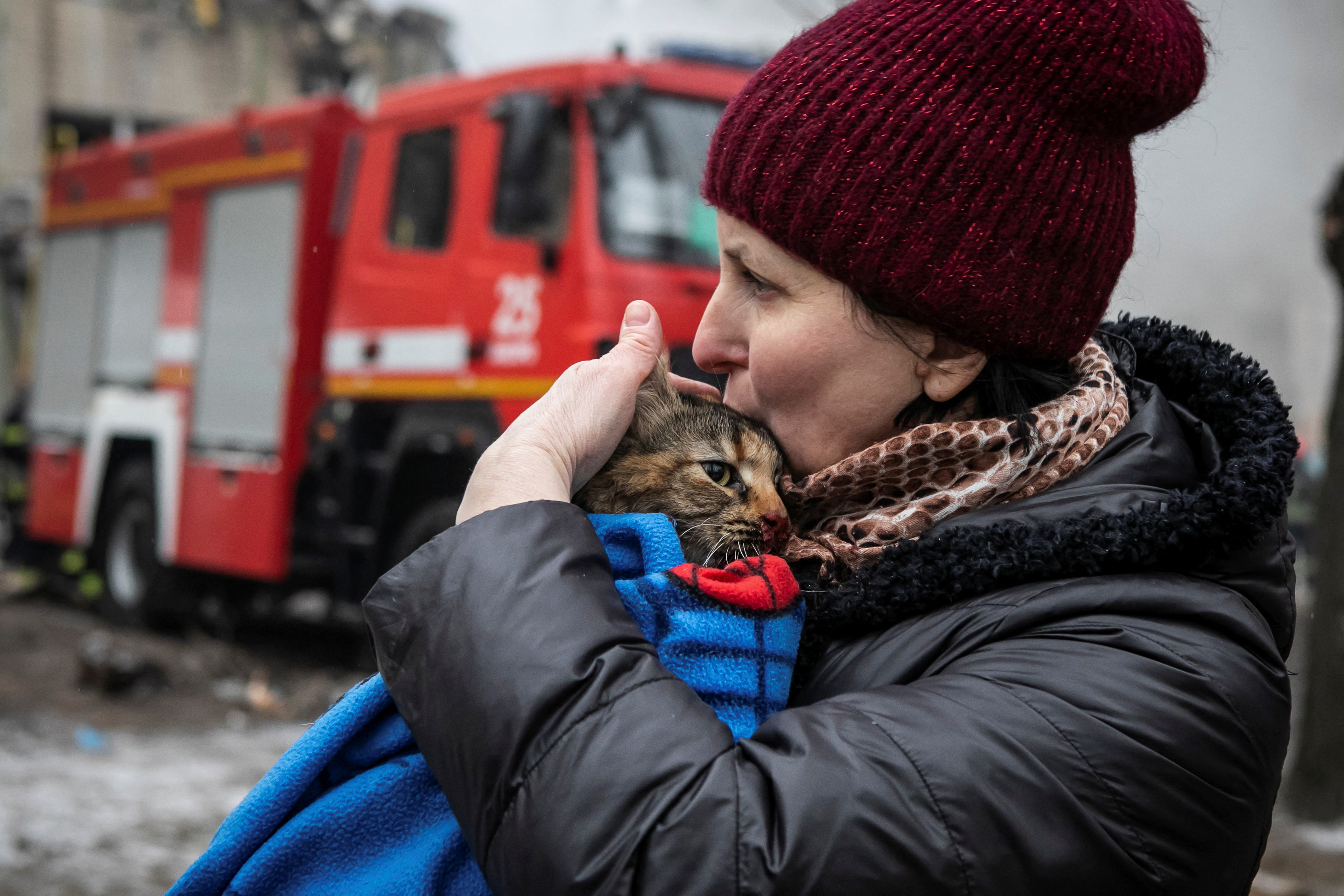
A local woman holds her cat rescued by emergency workers at the site where an apartment block was heavily damaged by a Russian missile strike, amid Russia’s attack on Ukraine, in Dnipro, Ukraine January 15, 2023. REUTERS/Yevhenii Zavhorodnii

Ukrainian servicemen fire a BM-21 Grad multiple launch rocket system towards Russian positions on a frontline near the town of Bakhmut, amid Russia’s attack on Ukraine, in Donetsk region, Ukraine January 15, 2023. REUTERS/Oleksandr Ratushniak
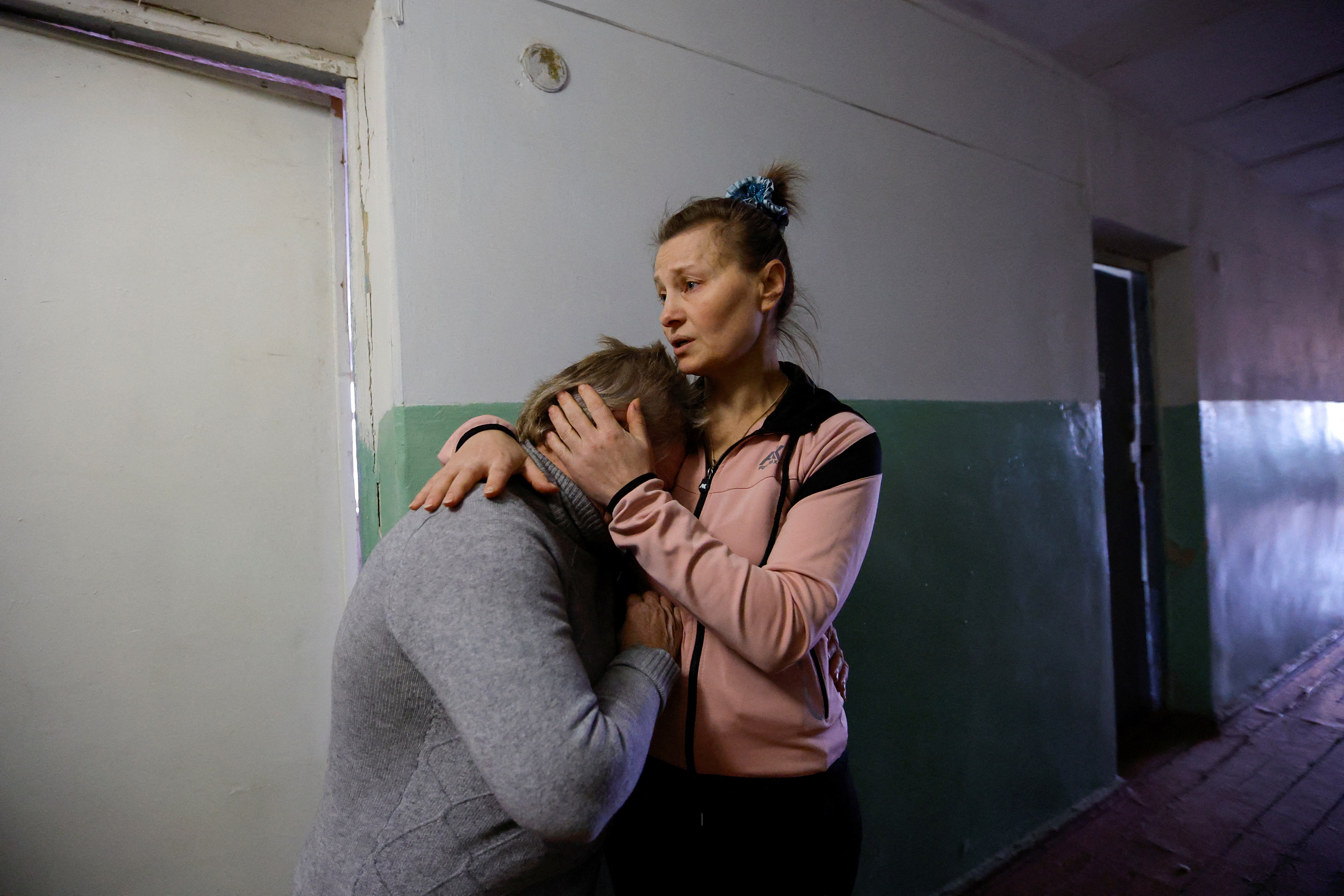
Natalya and Yelena, 65, who didn’t give their family names react while standing in a corridor of a temporary accommodation centre located in a local dormitory for civilians evacuated from the salt-mining town of Soledar in the course of Russia-Ukraine conflict, in Shakhtarsk (Shakhtyorsk) in the Donetsk Region, Russian-controlled Ukraine, January 14, 2023. REUTERS/Alexander Ermochenko
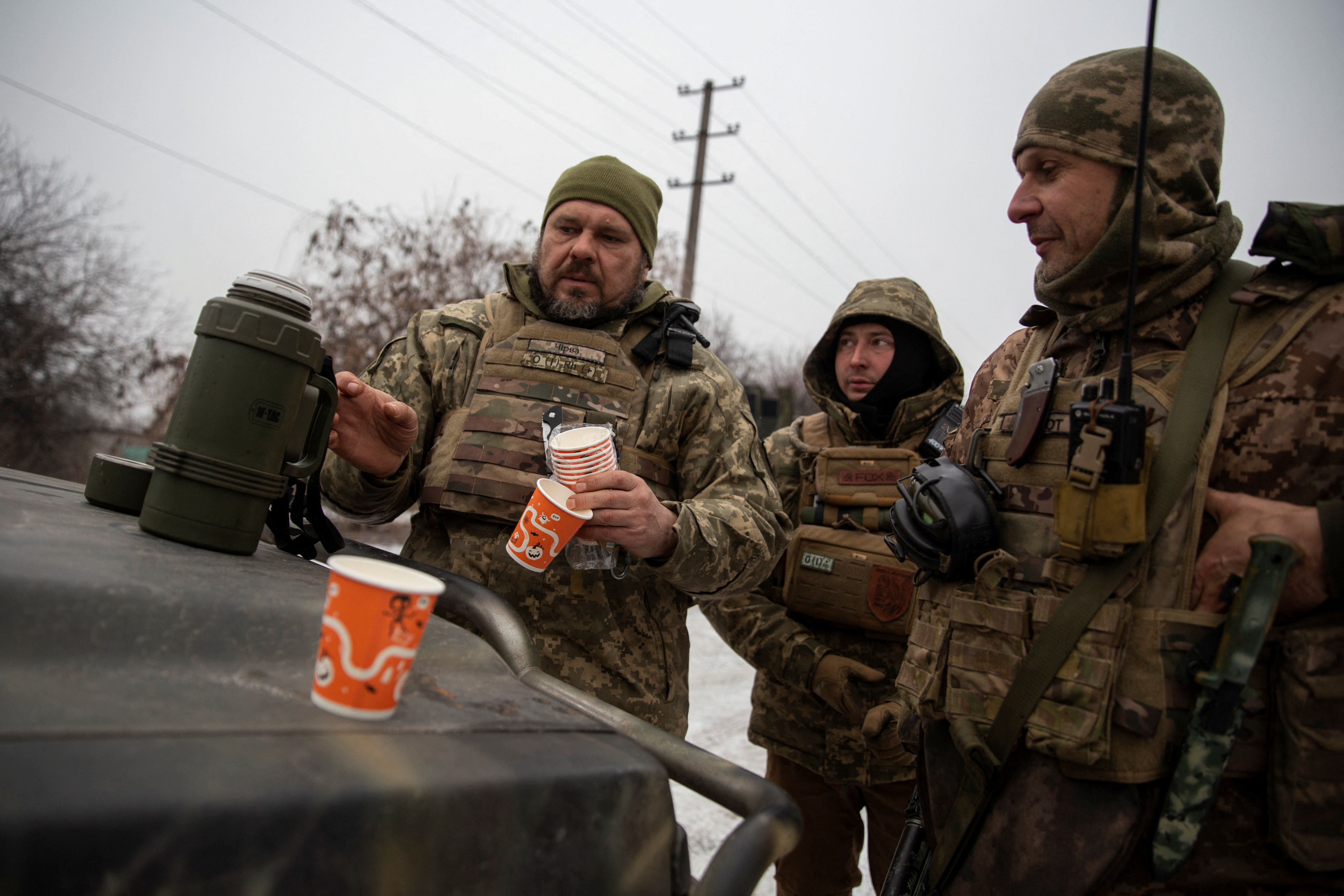
Ukrainian servicemen have coffee before moving to their position on a frontline near the town of Bakhmut, amid Russia’s attack on Ukraine, in Donetsk region, Ukraine January 15, 2023. REUTERS/Oleksandr Ratushniak
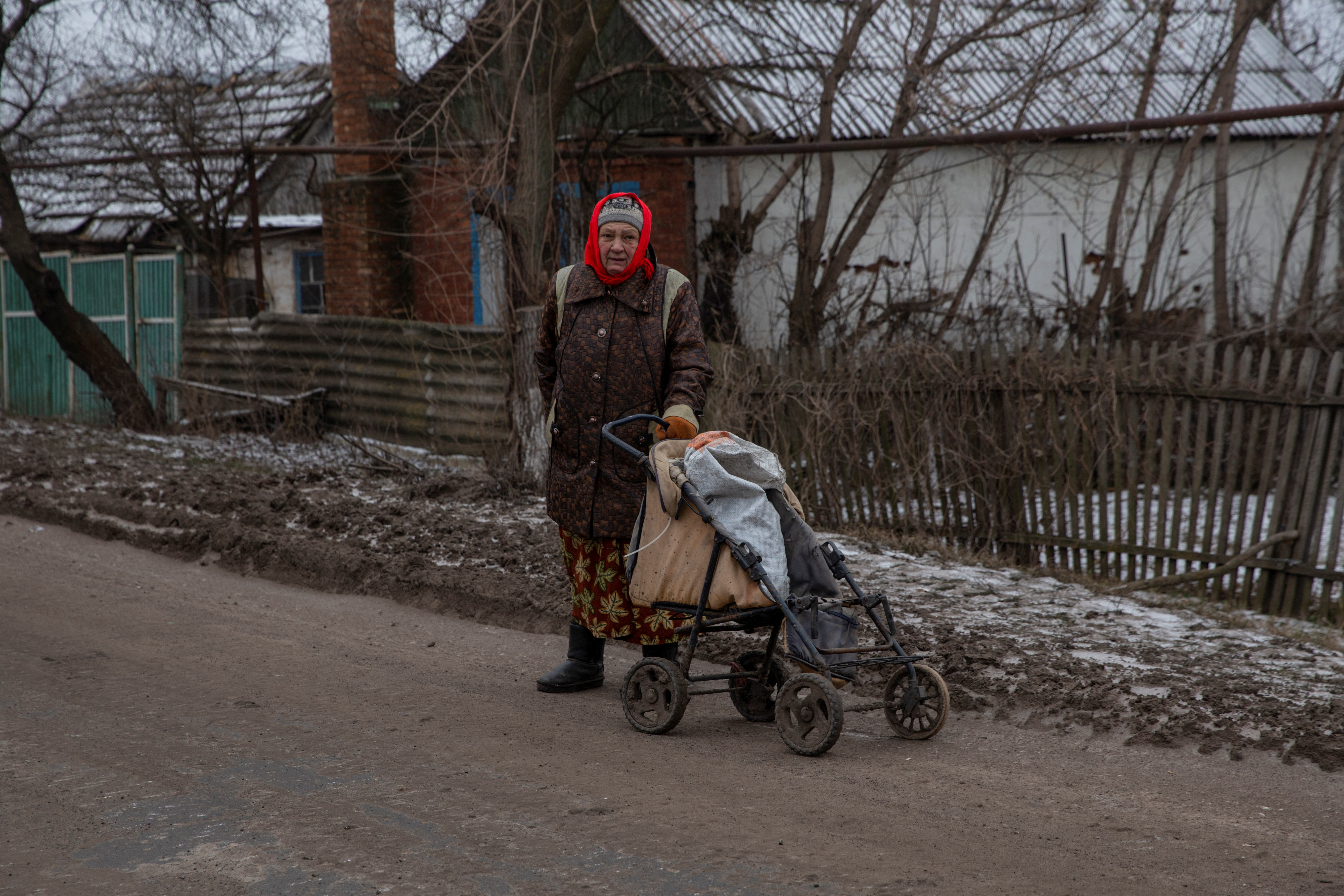
A woman pushes a stroller loaded with a sack of coal for heating her house, amid Russia’s attack on Ukraine, in the village of Nykyforivka, Donetsk region, Ukraine, January 15, 2023. REUTERS/Oleksandr Ratushniak

People take shelter inside a metro station during massive Russian missile attacks in Kyiv, Ukraine January 14, 2023. REUTERS/Viacheslav Ratynskyi
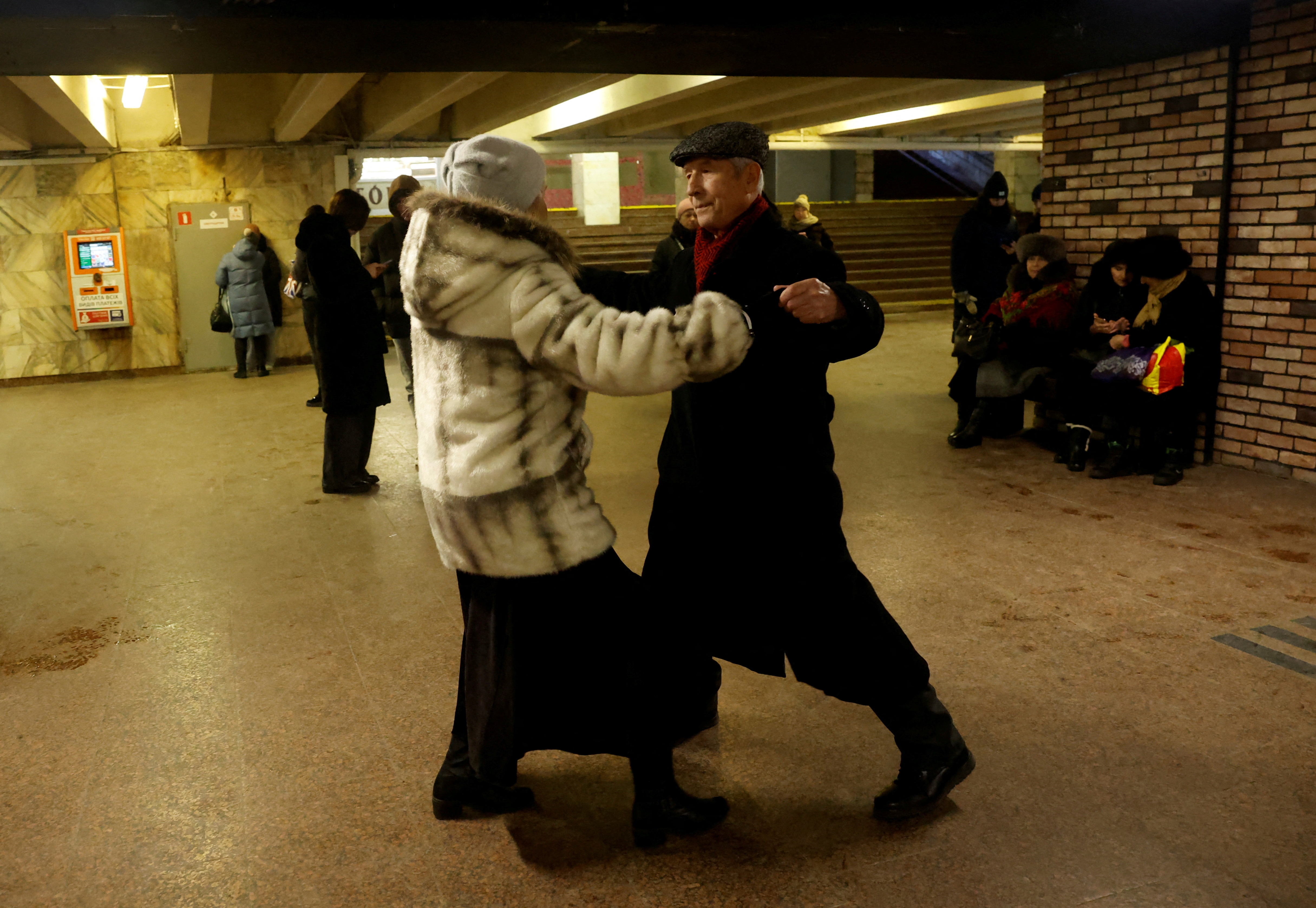
People dance to music as they take shelter inside a metro station during massive Russian missile attacks in Kyiv, Ukraine January 14, 2023. REUTERS/Clodagh Kilcoyne
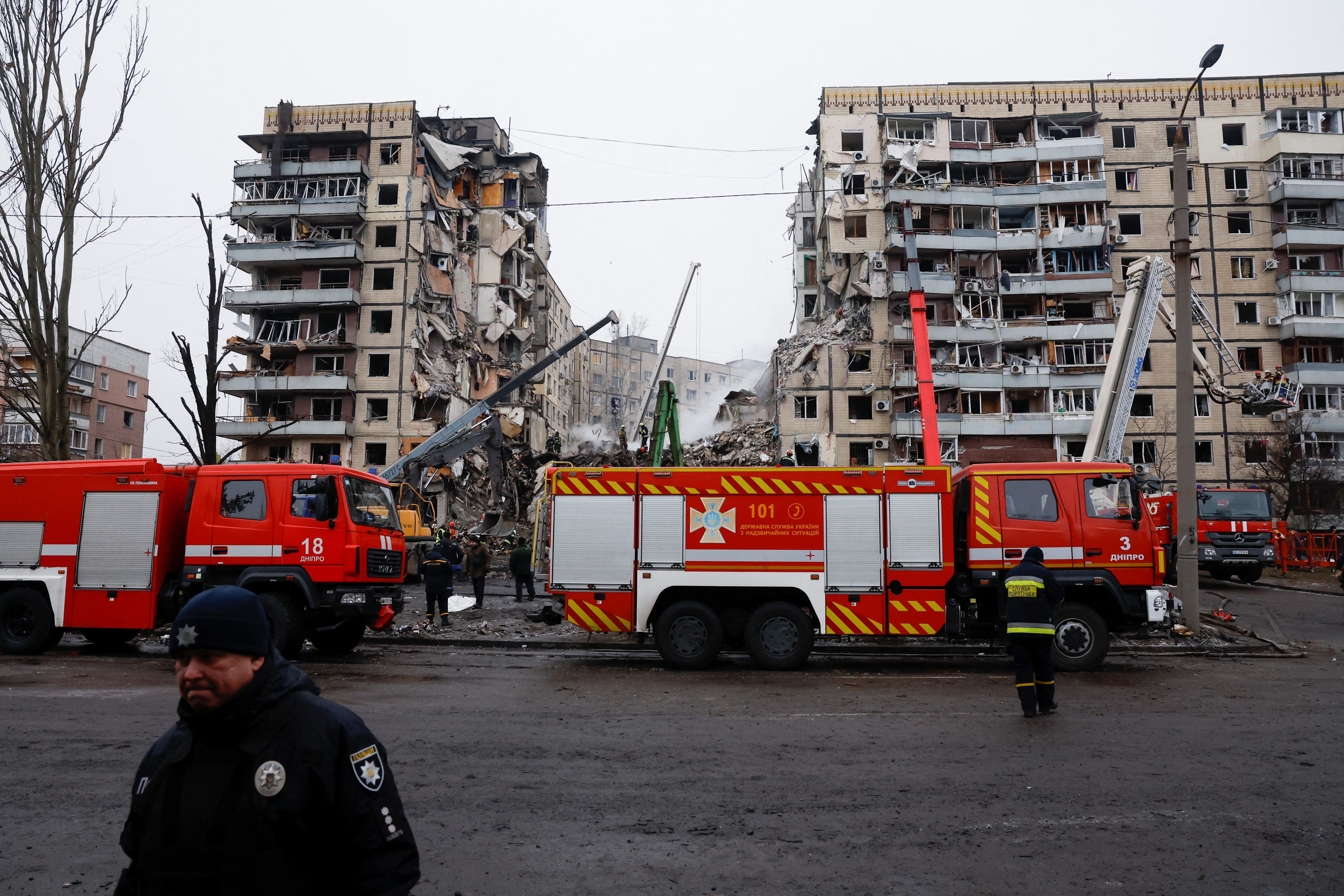
Emergency personnel work at the site where an apartment block was heavily damaged by a Russian missile strike, amid Russia’s attack on Ukraine, in Dnipro, Ukraine January 15, 2023. REUTERS/Clodagh Kilcoyne
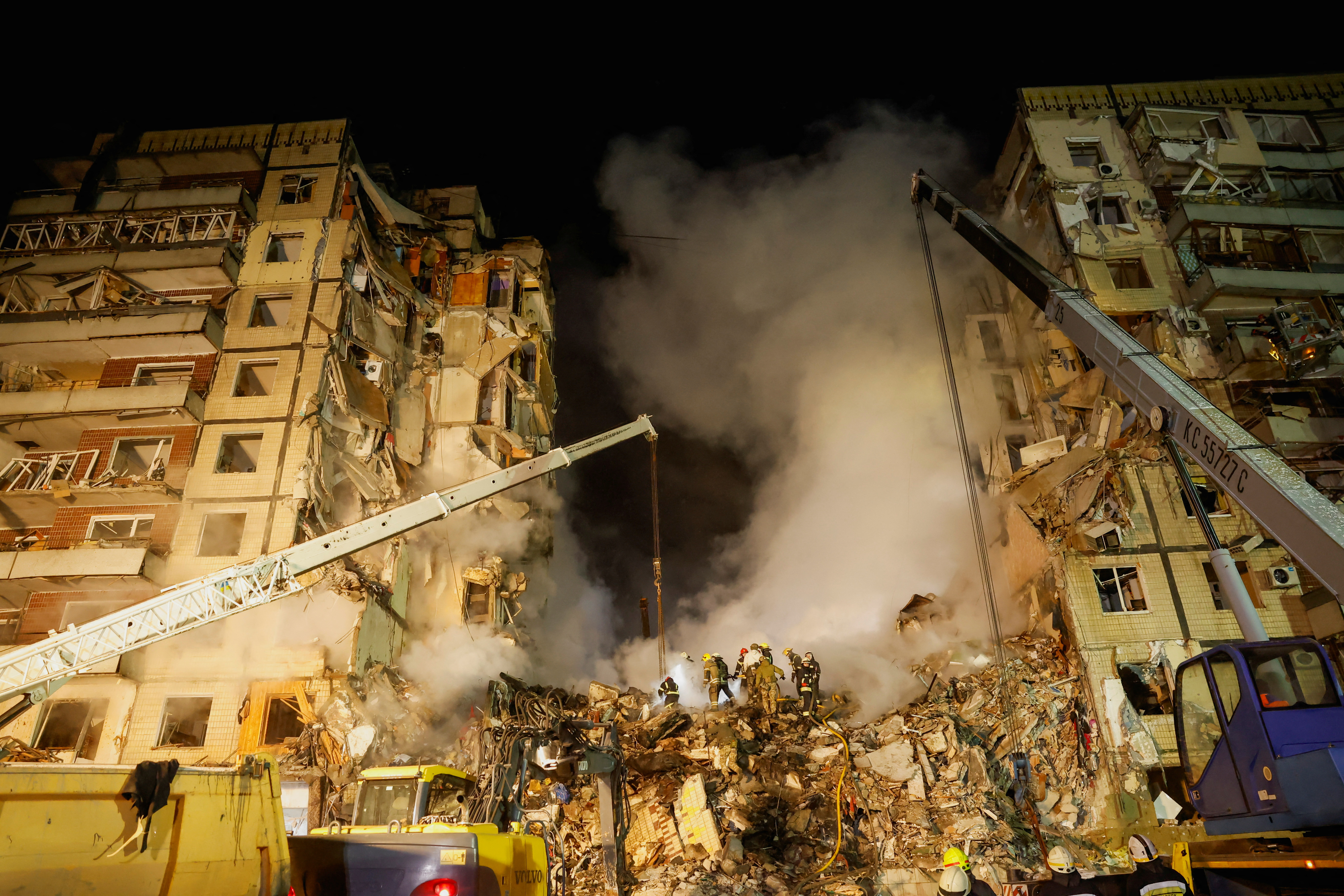
Emergency personnel work at the site where an apartment block was heavily damaged by a Russian missile strike, amid Russia’s attack on Ukraine, in Dnipro, Ukraine January 15, 2023. REUTERS/Clodagh Kilcoyne

A satellite view shows a closer view of exploding munitions, in Bakhmut, Ukraine, January 3, 2023. Satellite image 2023 Maxar Technologies./Handout via REUTERS

A satellite view shows destroyed apartment buildings and homes, in Soledar, Ukraine, January 10, 2023. Satellite image ?2023 Maxar Technologies./Handout via REUTERS
